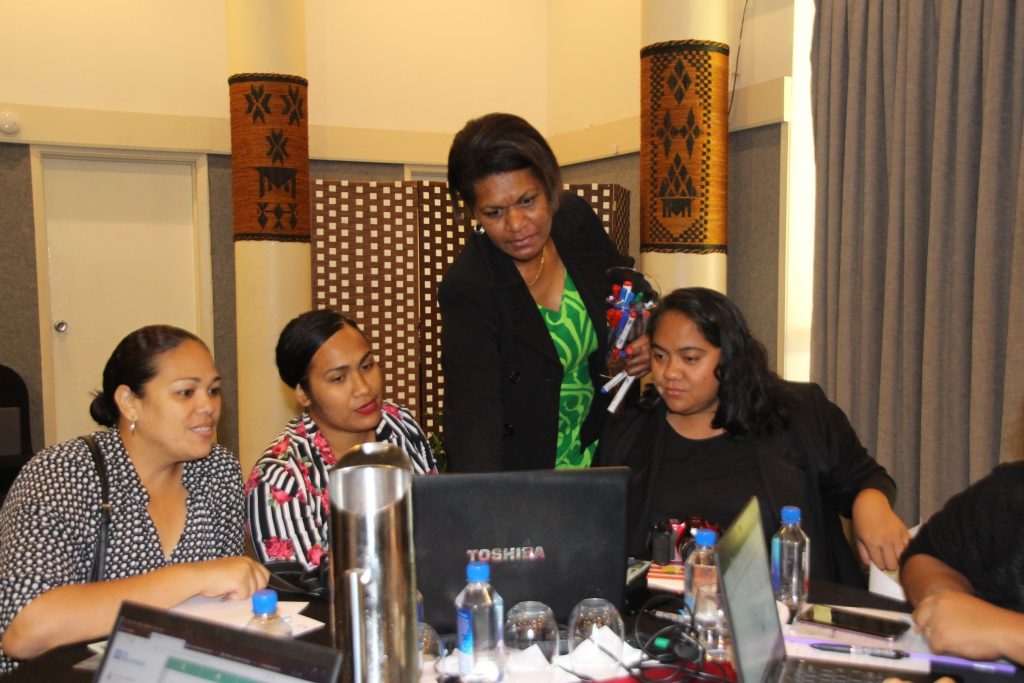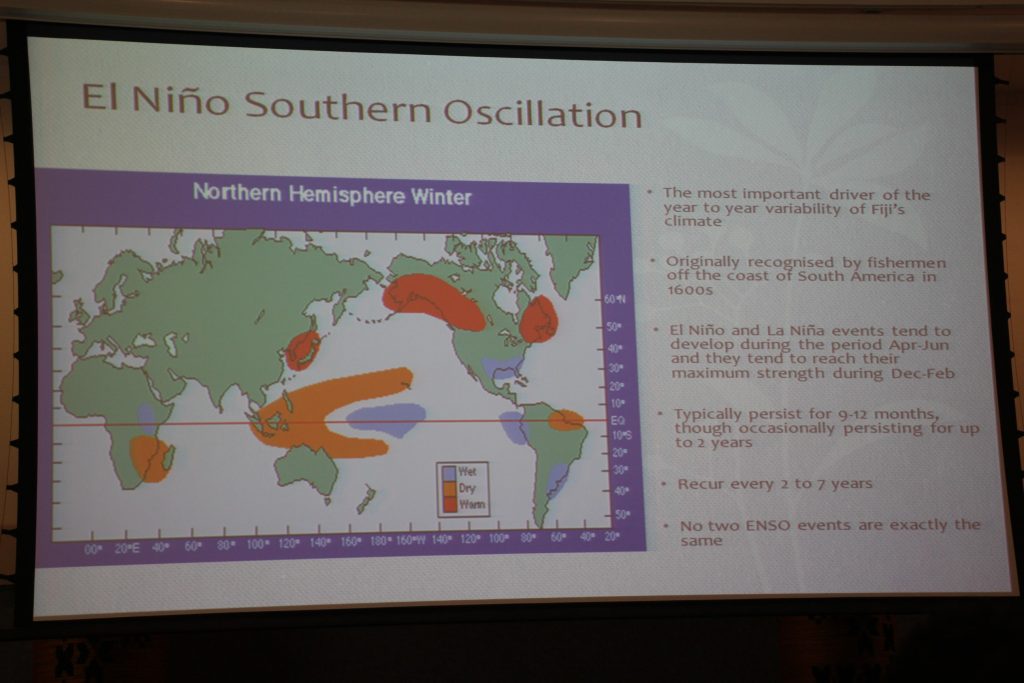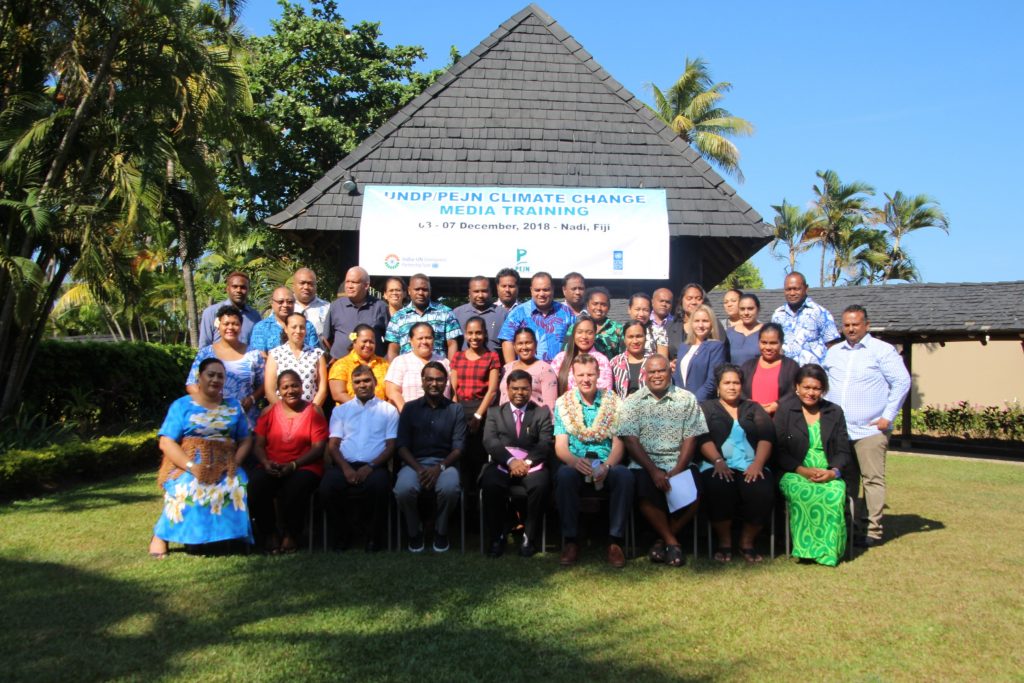Journalists in the Pacific region who cover climate change and environment-related issues continue to face many challenges.
The scientific component of climate change has traditionally been the greater area of challenge. This is coupled with the lack of opportunities that enable reporters to enhance their understanding to be more effective at communicating about the complexities of climate science and about the societal and economic impacts of a warming planet.
Through the United nations Environment Program (UNDP) capacity building efforts, about 20 regional journalists from 9 Pacific Island countries and students from the University of the Pacific gathered in Nadi, Fiji last December 2018 to increase the quality and quantity of climate change reporting and how best to communicate it to the public.
During the Capacity Building Workshop for the media, they discussed and shared ideas relating to challenges they face when it comes to reporting on climate change stories and they also put forward ideas as to how these challenges can be overcome.
The Climate change media training and workshop held in Nadi, was organised by the UNDP office in Fiji in partnership with the Pacific Environment Journalist Network (PEJN) and funded by the Indian government through its Early warning system project.

“We have brought together regional media in the hope that we can get them to understand climate change reporting , especially more on understanding data on the weather, weather forecasting and early warning system and being able to translate that into news item stories that our regional people can understand, ” IliesaTora of the Pacific Environment Journalism Network, ( PEJN) said.
A session by the Fiji Meteorological Service was an eye opener for the participants. The session looked at the relationship between climate and weather, which stirred the discussion and new understanding and knowledge for the participants.

The other interesting session for the workshop and perhaps a growing concern for Pacific Island journalists is being gender inclusive when it comes to reporting on climate change issues.
Facilitator and Communication Specialist with UNDP Office in Fiji, Emily Moli took the participants into a relatively new ground as far as reporting was concerned in the region.
In her presentation titled, “Gender Sensitive -Communication” she pointed out why it was also important for regional journalists to get a grasp of this new concept when it comes to reporting on climate change.
Moli says working in Communications and being part of the Gender Focal Team in UNDP has made her understand the importance of using language that doesn’t enforce inequalities and stereo types, but rather helps to subvert them.
“It also helps when policies or frameworks on early warning systems or climate change are Gender-Inclusive. The gender dynamics is often neglected when designing related projects so I feel this is important – Understanding gender interpretations is essential as their actions directly affect communities and their response to disasters,” Moli said.

During the workshop, the journalists also went on two excursions to see firsthand how two villages in Fiji are coping with climate change.
The first stop was at Tukuraki Village, a village in the hinterlands of the Ba region. The village has been relocated to a new site following its devastation by landslide, which killed a family of Four (4) in 2012.
The visit to Tukuraki showed a practical example of people being displaced from their indigenous land and forced to resettle in a foreign land.
The community had mixed reactions to their relocation. However, they all acknowledged that while they are faced with some challenges in their new location, it has also created new opportunities to better their lives.
With a strong support from authorities, the villagers now have permanent houses built to withstand future natural disasters.
The relocation of the Tukuraki Village was made possible through the European Union and the ACP Group of States -funded Building Safety and Resilience in the Pacific Project (BSRP) implemented by the Pacific Community.




